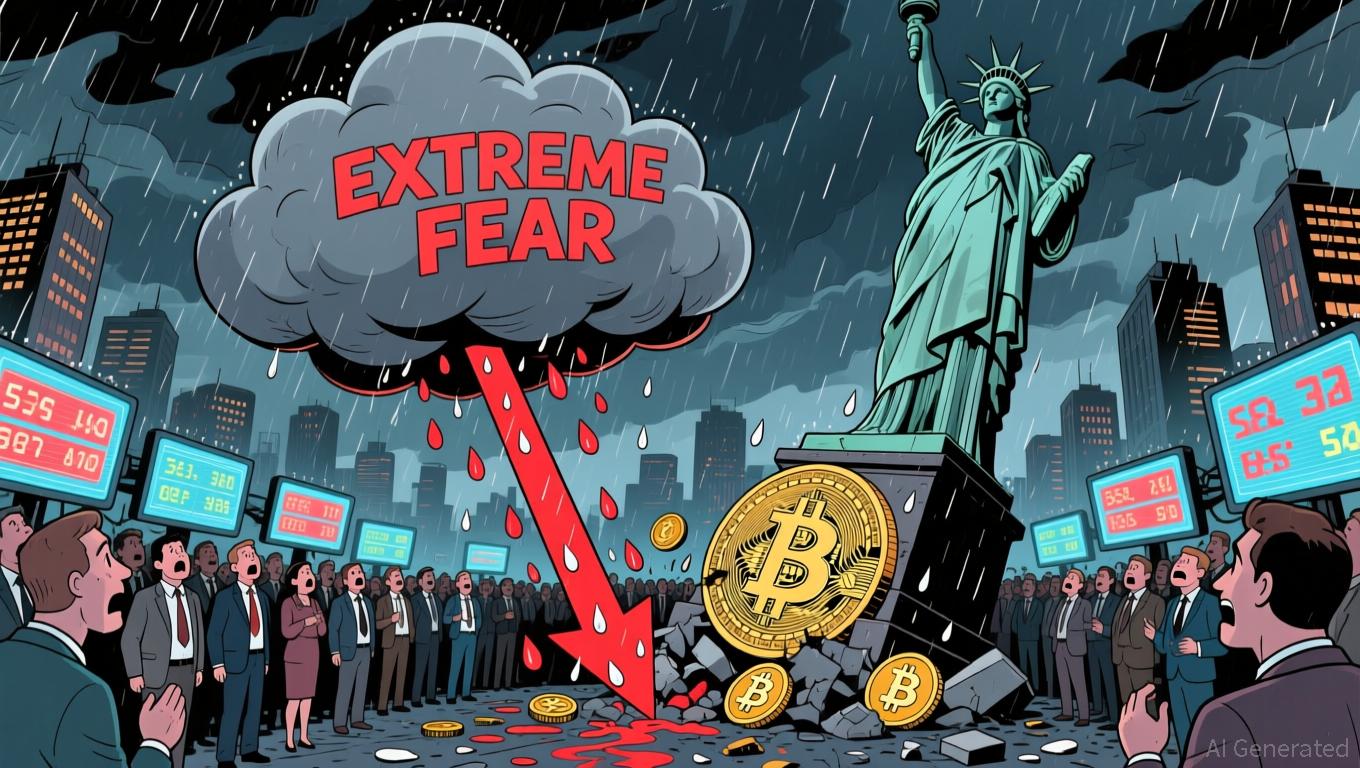EU Crypto Regulations Struggle to Balance Centralized Oversight with Regional Knowledge
- EU Commission proposes centralizing crypto oversight under ESMA, replacing MiCA's national regulator model and sparking industry concerns over legal uncertainty and implementation delays. - Critics warn centralized control risks destabilizing MiCA's 2026 rollout, with national regulators arguing they maintain closer firm engagement and ESMA requiring significant resource boosts. - France and ESMA Chair Verena Ross support centralization for regulatory consistency, but timing concerns persist as national
The European Commission is advocating for a major transformation in how cryptocurrencies are regulated across the EU, suggesting that the European Securities and Markets Authority (ESMA) should take on direct supervision of all crypto businesses within the union. This would move away from the current Markets in Crypto-Assets (MiCA) system, which relies on national regulatory bodies,
At present, MiCA requires crypto companies to obtain approval in one EU country, allowing them to operate throughout the bloc using a "passporting" mechanism. National authorities have spent years preparing for this approach, with the transition period ending in 2026.

Industry stakeholders have voiced significant concerns. Robert Kopitsch, secretary general of Blockchain for Europe,
This initiative is part of a broader push by EU lawmakers to unify oversight of financial markets, such as extending ESMA’s jurisdiction over clearing entities and trading platforms.
Nonetheless, critics argue that the timing of this proposal is problematic. National regulators are already dealing with the challenges of putting MiCA into practice, and transferring duties to ESMA might slow down approvals and make compliance more difficult for companies. In July 2025,
The proposal, which remains in draft status, still needs the backing of both the European Parliament and the Council of member states. If enacted, it could represent a significant change in how the EU manages financial regulation, aiming to balance centralized control with the need for local adaptability. For now, the discussion highlights the ongoing struggle between achieving regulatory efficiency and addressing the complex realities of a diverse and high-risk sector.
Disclaimer: The content of this article solely reflects the author's opinion and does not represent the platform in any capacity. This article is not intended to serve as a reference for making investment decisions.
You may also like
Japan Unveils $110B Stimulus: Major Shift from Fiscal Restraint to Economic Expansion and National Security
- Japan's PM Sanae Takaichi unveils $110B stimulus to combat stagnation and bolster security amid China tensions. - Plan includes tax cuts, utility subsidies, defense spending, and strategic investments in AI, semiconductors , and shipbuilding. - Funded by 14-trillion-yen supplementary budget, with potential expansion to 20-trillion-yen ($133B) as per analyst estimates. - Shift from austerity reflects Takaichi's hardline security stance and response to China's travel advisory over Taiwan remarks. - Impleme

Bitcoin News Update: Bitcoin Reaches $96K Amidst Institutional Interest and Challenges from Regulations and Price Barriers
- Bitcoin surged past $96,000 as buyer accumulation and seller exhaustion drove short-term recovery, though $106,000–$118,000 remains a key resistance zone. - Harvard’s $443M investment in BlackRock’s IBIT highlights growing institutional adoption, contrasting traditional preferences for private equity. - Bitcoin Depot reported 20% Q3 revenue growth but faces regulatory challenges, expanding internationally while projecting Q4 declines due to compliance costs. - MicroStrategy’s Michael Saylor denied Bitcoi

Bitcoin News Today: Bitcoin Faces $62K Drop Threat Amid Fed's Data Silence Predicament
- Bitcoin faces $62K crash risk amid Fed uncertainty caused by U.S. government shutdown's "data blackout" disrupting inflation/labor data. - Post-Nov 13 reopening saw BTC rebound above $102K, but markets remain fragile with 20% decline from October peak despite $140B ETF growth. - Fed rate cut odds dropped to 52% for December, creating volatility as institutions like Harvard Endowment invest $443M in Bitcoin ETFs. - U.S. miners struggle with 37.75% global hashrate share amid lack of federal incentives, con

Bitcoin Updates Now: Crypto Faces a Standstill as Market Anxiety Meets Harvard’s Confident Bitcoin Investment
- Alternative Data's Fear & Greed Index hit record low 10 on Nov 16, signaling extreme crypto market fear and frozen investor sentiment. - Bitcoin fell 5% to $96,000 while CD20 lost 5.8% as profit-taking, liquidations, and liquidity declines accelerated selloffs. - Rising U.S. Treasury yields and central bank uncertainty worsened losses, with Nansen noting "perfect storm" of macro risks and institutional outflows. - Harvard's $443M IBIT ETF investment contrasts current bearishness, highlighting diverging i
